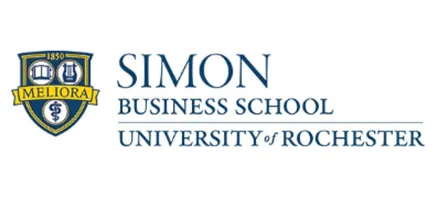
Gregor Halff, dean of education at Copenhagen Business School in Denmark: “Entrepreneurs can use their skill sets to create wealth, solve wicked problems, serve society, or do all of the above — the choice is theirs.”
Sustainability has become a key but challenging topic for business schools. With the impact of climate change and businesses looking to adapt their strategies to incorporate more sustainability-focused initiatives, business schools have an important role to ensure that future leaders are going to contribute to tackling climate change effectively.
According to a 2020/21 report on International Climate Change by the Association of MBAs, 65% of business school decision makers believe their own school is “excellent,” “very good,” or “fairly good” at playing their role in preventing further climate change. But the same report reveals that when business schools were asked to rate their programs out of 10 in how effectively their teaching was in the role that managers should play in contributing to climate change prevention, the mean score was less than 6 out of 10. The schools clearly believe they could do more to convince managers to contribute to the fight against climate change.
Many schools have therefore launched sustainability tracks into the MBA programs, including NYU Stern School of Business’ Full-time MBA, Sustainable Business and Innovation Specialization, where students are equipped with an understanding of key sustainability challenges and opportunities for business today. Northwestern’s Kellogg School of Management offers students an Energy and Sustainability pathway on the MBA which guides students in how to integrate sustainability into enterprise and investment decisions.
But can schools do more than offer electives on sustainability to MBA students? Can future managers actually learn how to have a greater focus on sustainability and the tackling of climate change by just learning about it in a classroom – or should MBA candidates have a fully immersive experience to really make a change?
LEARNING BY DOING

Angelika Werner, Frankfurt School of Finance & Management vice president for strategic relations: “Experience gives students insight and knowledge”
One business school that lives and breathes the ‘learning by doing’ ethos is Alliance Manchester Business School in the UK. The business school prides itself on its practical approach to teaching MBA students in an ever-changing world, and has a number of compulsory business projects that allow students to tackle real-life projects.
The school’s not-for-profit project is a compulsory consultancy project for all MBA students who, as a group, complete 200 hours of intensive consultancy work for a local community group looking for support with a fundraising campaign, or a larger company looking at sustainability issues.
For Arjun Sharad, a full-time MBA student at Alliance Manchester, the opportunity to take on a not-for-profit project and engage with real-world initiatives was too good to turn down. “For me, this project was one of the main reasons the Manchester MBA interested me, I wanted to have the experience of working with a not-for-profit company and understand the various challenges they face, and the growth drivers for these firms which allow them to create an impact for the society.”
Arjun’s not-for-project was with local charity City of Trees, finding solutions to implement a charitable donations campaign for them to raise funds towards achieving their goal of planting three million trees in the next three to five years. These projects are something Arjun believes should be instilled into all MBA programs, “it is extremely important for decision-makers to be aware of their responsibilities and they must ensure they align the goals of their business with CSR initiatives and create value for societal, environmental and sustainability purposes which are as equally important as financial value creation,” he says.
MUTUAL BENEFIT FOR STUDENTS & SOCIAL ENTERPRISES
These real-life projects are not only beneficial for those students involved. When Bo Sauer, a student at the Frankfurt School of Finance & Management in Germany, voiced the idea of a pro-bono initiative to the school’s management board, he wasn’t just thinking about the experience students would gain. “In my opinion, the experience gives students insight and knowledge, but it’s also an opportunity for charities as well to mutually benefit from working together and improve the impact of the organizations.”
The pro-bono project was initiated by Angelika Werner, Frankfurt’s vice president for strategic relations, who developed a strategy for students to work with a social enterprise run by a Frankfurt advisory board member, Dr. Steen Rothenberger. The social enterprise, PfefferminzGreen, raises funds for social projects and NGOs in Sub-Saharan Africa, even adapting a strategy for a coffee farm in Ethiopia to ensure they had an efficient distribution stream.
Students used their skillsets to develop courses for action, addressing quality management as well as exporting and marketing the coffee, despite working in the challenging environment of a pandemic – and remote working – in a country where it was difficult to gather data. Nonetheless, Sauer believes that the project allowed him to “gain insights into and develop a new awareness for industries and countries that weren’t at the top of my mind beforehand, and a lot of first-hand experience in project management and planning that will help in future roles.”
The coffee farm now has a working strategy for their distribution channels developed by the MBA consultants, and a number of students are continuing their roles in an internship capacity.
TO LEARN WITHOUT RISK OF FAILURE
Though real-world initiatives around sustainability and climate change have a clear and direct impact, some MBA students who want to be innovative in the field of sustainability may be held back by the sometimes risk-averse nature of initiatives. For many MBA students, their business school experience is a safe space where they can learn from mistakes and failures without it having a real-world impact. And many schools look to foster this in their projects, to ensure students can be inventive and take chances without having a real-world impact.
This includes initiatives in sustainability too, such as ESADE Business School in Spain, which recently launched a Sustainability Simulation Challenge. The simulation allows students to be part of a team managing a dairy company. Various tools are used to make decisions regarding several variables like price, product, and finance in a constantly changing environment. Each of these decisions is evaluated by the simulator while considering the Sustainable Development Goals (SDGs), and each team is given a ‘company value’ that changes as decisions are made.
The simulation was launched to create an educational experience for students which supports the understanding and dissemination of the SDGs – and their implications. “We want to reinforce our students’ commitment to sustainability and encourage an analysis and reflection on the relationship between sustainability and decision-making in organizations,” says Josep Lluis Cano, head of the challenge and senior lecturer at the ESADE Department of Operations, Innovation and Data Sciences.
It’s important that all students have the option to see the real-life impact that decisions based around SDGs can have on a company’s value, especially in an environment that is a simulation and exempt from failure.
“The complexity of a decision is much greater when we consider economic, social, and environmental aspects than when we only consider the economic aspects,” says Cano, suggesting that students have to learn how to balance organisational value and the SDGs.
THE BEGINNING OF A TRANSFORMATIONAL BUSINESS
These short projects with social initiatives can offer a student the opportunity to do their bit in tackling climate change and environmental issues in the short-term, but what if they want to continue doing so in their own capacity whilst studying and post-graduation? Many business schools want to offer as much help, advice and support to those students who want to create sustainability focused start-ups, but how can they foster this space to do so?
Copenhagen Business School in Denmark helps their graduates launch sustainability-focused start-ups through their Transformational Entrepreneurship Centre, which was launched in 2007, and sees around 250 student start-ups join every year. A novice entrepreneur needs both the opportunity to develop their skills, but also a community that can serve as a safe space for both personal and professional development, says Andreas Gjede, director of the Entrepreneurship Centre at Copenhagen. “Entrepreneurs need a trampoline to catapult them to grow encouragingly, innovatively, and yet securely. We are that interconnected spot.”
The focus of the lab is to ensure those students who have transformational ideas have an environment and the resources to explore these even further and scale up.
“Entrepreneurs can use their skillsets to create wealth, solve wicked problems, serve society, or do all of the above — the choice is theirs. But I believe it is the duty of leading business schools to transform its students into graduates who can make that choice. Transformational entrepreneurship helps to do that,” says Gregor Halff, dean of education at Copenhagen Business School.
ENSURING STUDENTS HAVE THE ENVIRONMENT TO FLOURISH
“The goal of a business school,” says Angelika Werner, “is to create a space and foster the opportunity for students the experience to learn from as many different perspectives as they possibly can.” And that is why it’s important to offer students not only the opportunity to learn about sustainability and tackling climate change, but also offer them the ability to learn by doing.















